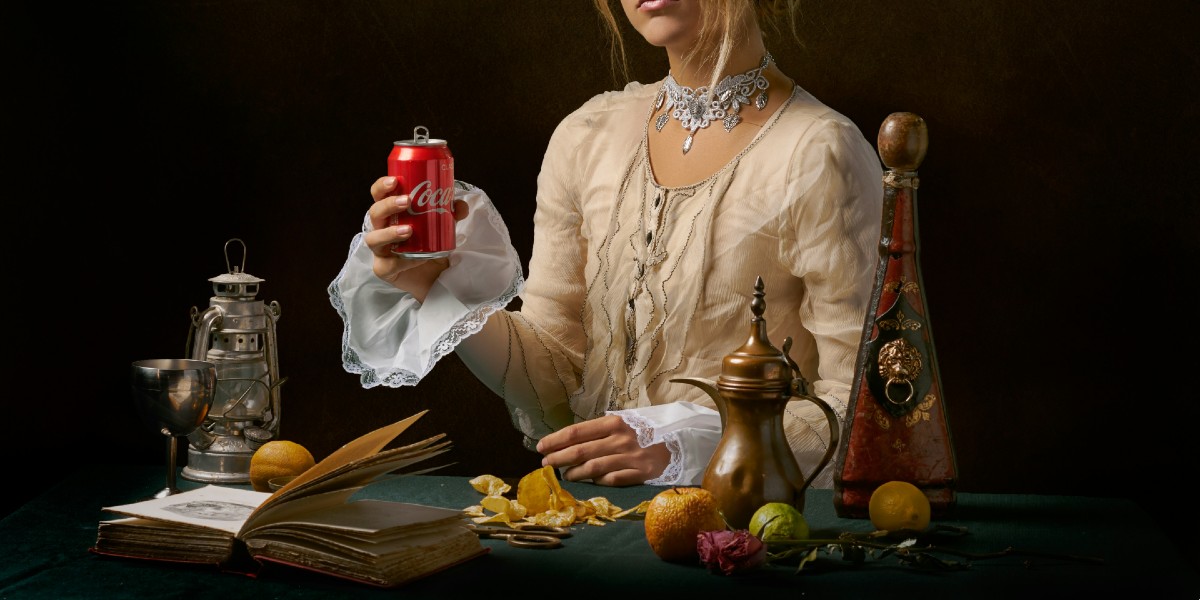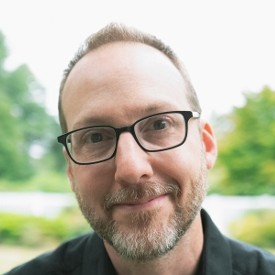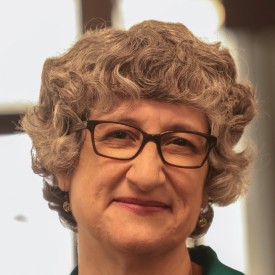Aaron Mahnke is the creator, producer, and host of the podcast Cabinet of Curiosities. His first podcast success was his 2015 launch of Lore, which has since been adapted for two seasons of television on Amazon Prime. He is the founder of Grim & Mild Entertainment, an audio production company.
What’s the big idea?
A collector of the most curious stories from the past shares lessons from his time exploring dusty corners of history. Studying bizarre tales and people shaped his outlook on life in ways that inspire comfort and confidence about trusting the messiness of a worthwhile journey.
Below, Aaron shares five key insights from his new book, Cabinet of Curiosities: A Historical Tour of the Unbelievable, the Unsettling, and the Bizarre. Listen to the audio version—read by Aaron himself—in the Next Big Idea App.

1. Different is better.
I’m a pretty orderly person. I have a place for everything on my desk, and I’m a black belt when it comes to organizing my digital files. Some might call me obsessive, but I just think life and work are both easier when everything is neat and tidy.
The trouble is that history is one long case study in the power of being different. Standing out from the crowd, taking the path less chosen, and refusing to fit in are all roads to greatness. Take the 1918 U.S. postage stamp known as the Inverted Jenny, named so because it featured an image of a Curtiss model JN-4 airplane—nicknamed “the Jenny”—that was accidentally printed upside down.
Not all of them, though. Only a single sheet of 100 stamps was printed before the error was fixed. That sheet, however, made it into public hands and instantly became a desirable collectible. It was sold and resold over the years, and its value soared. Just last year, a single Inverted Jenny stamp sold for $1.7 million at an auction. It was a mistake that made them flawed, but it also made them incredibly valuable.
2. Mishaps can improve us.
Most people prefer to have a plan. It might be nothing more than a bare bones list of things to do, or it could be as elaborate as an hour-by-hour itinerary for an upcoming family vacation. Having a plan can be reassuring. It certainly is for me.
When things don’t necessarily go according to plan, our tendency is to call those moments mistakes. Most people see them as detours rather than one more chapter in the book of life. If writing about history has taught me anything over the years, it’s that sometimes our mishaps reshape us.
For proof, look at the life of a police officer’s son named Eugene. Rather than follow in his father’s footsteps, he joined the Army Air Corps and got his pilot’s license, enlisting days after the attack on Pearl Harbor. A few years later, after a nasty crash-landing, he decided to leave the military behind. He soon joined Pan American Airways as a pilot, but in 1947, he found himself on another plane with another problem, and it too crash-landed. Eugene gave up at that point. He had planned his life out, but the unplanned mishaps had taken all the fun out of it.
“If writing about history has taught me anything over the years, it’s that sometimes our mishaps reshape us.”
Only, that’s not exactly true. Yes, those mishaps steered him away from the cockpit. But they allowed him to find a new career writing for television. A career that allowed him to create his own show about crew members of a vessel that boldly went where no man had gone before. Yes, Gene Roddenberry encountered some turbulence early on, but those are mishaps that millions of Star Trek fans are very grateful for today.
3. Someone is always watching.
I’m a parent, and that means I’m always tired, I run a not-for-profit shuttle service, and I always have an audience. It’s that last one that has really been a struggle for me. The fact that my children have been watching me for years—hearing my conversations, seeing me fail at home improvement projects, and reacting to the ups and downs of life—has been humbling. But that’s how it is: quietly, slowly, and often thanklessly, we make an impact on the people around us.
Not a lot of people remember Joseph Bell. He was a medical doctor in the late 19th century and came from a long line of medical doctors. Joseph, however, was also a professor at the University of Edinburgh. He rightly expected to have a certain kind of impact on his students: they would become physicians.
But his unique personality also sparked an odd curiosity within a few of them. For some reason, Joseph Bell’s attention to detail, sense of observation, and ability to see what others did not created a love of storytelling in a handful of students. James M. Barrie was a student of Bell’s before writing Peter Pan. The same with Robert Louis Stevenson, author of The Strange Case of Dr. Jekyll and Mr. Hyde. But one student took it even further and modeled an entire character after Bell. That writer was Arthur Conan Doyle, the creator of Sherlock Holmes.
Someone is always watching. And that’s a good thing.
4. Success is a team sport.
It’s easy to think we’ve accomplished something all on our own. Maybe it’s a promotion at work or closing the biggest sale of our career. We step back, smile with pride, and tell ourselves that our hard work made that accomplishment a reality.
And yet, I can’t help but think about Frank Hayes, who worked in the racehorse industry in the early 20th century. Born in 1888, he started with the dream of becoming a jockey, but he never won. So, he spent most of his career training racehorses for other jockeys, watching many of them become champions.
“Yes, he had won, but only because his horse had carried him home.”
In 1923, fate offered Frank another chance. One of his horses was scheduled to race at New York’s Belmont Park, but it needed a rider. If Frank could lose a few pounds very fast, he could sit in the saddle. Amazingly, he did.
Frank and his horse Sweet Kiss crossed the finish line first that day, giving him his first win. But when the crowd surrounded Sweet Kiss, they discovered that poor Frank had died in the saddle during the race. Yes, he had won, but only because his horse had carried him home.
It’s an extreme example, but the lesson is crystal clear. None of us ever cross the finish line without assistance. Let’s be thankful for the folks who help us succeed.
5. Necessity breeds creativity.
I grew up watching the classic 1980’s show MacGyver. He was incredibly resourceful. Give the man a pocketknife, a roll of duct tape, and a book of matches, and he could take down an entire terrorist cell and rescue his buddy. It was magical, and I loved him for it.
Most of us will never find ourselves held captive in a madman’s hideout, trying to break free, but we’re still thrown all sorts of curveballs throughout our lives. I’m a firm believer that our odds of rising to meet challenges are directly proportional to the amount of creativity we bring to the table.
It reminds me of a story about Napoleon’s military career. He was a brilliant tactician and paid attention to friction points in his campaigns. When he realized how hard it was to read battle plans at night, he asked one of his officers—Charles Barbier—to create a better system. Barbier’s solution was deemed a failure for being too complicated.
Years later, Charles shared his failed, touch-based alphabet with a class of school children, and one of the boys made some suggestions for improving it. When Charles ignored the feedback, the boy—Louis Braille—developed it on his own, changing the lives of the visually impaired forever. When a problem slows you down, don’t give up. Instead, get creative.
To listen to the audio version read by author Aaron Mahnke, download the Next Big Idea App today:
































